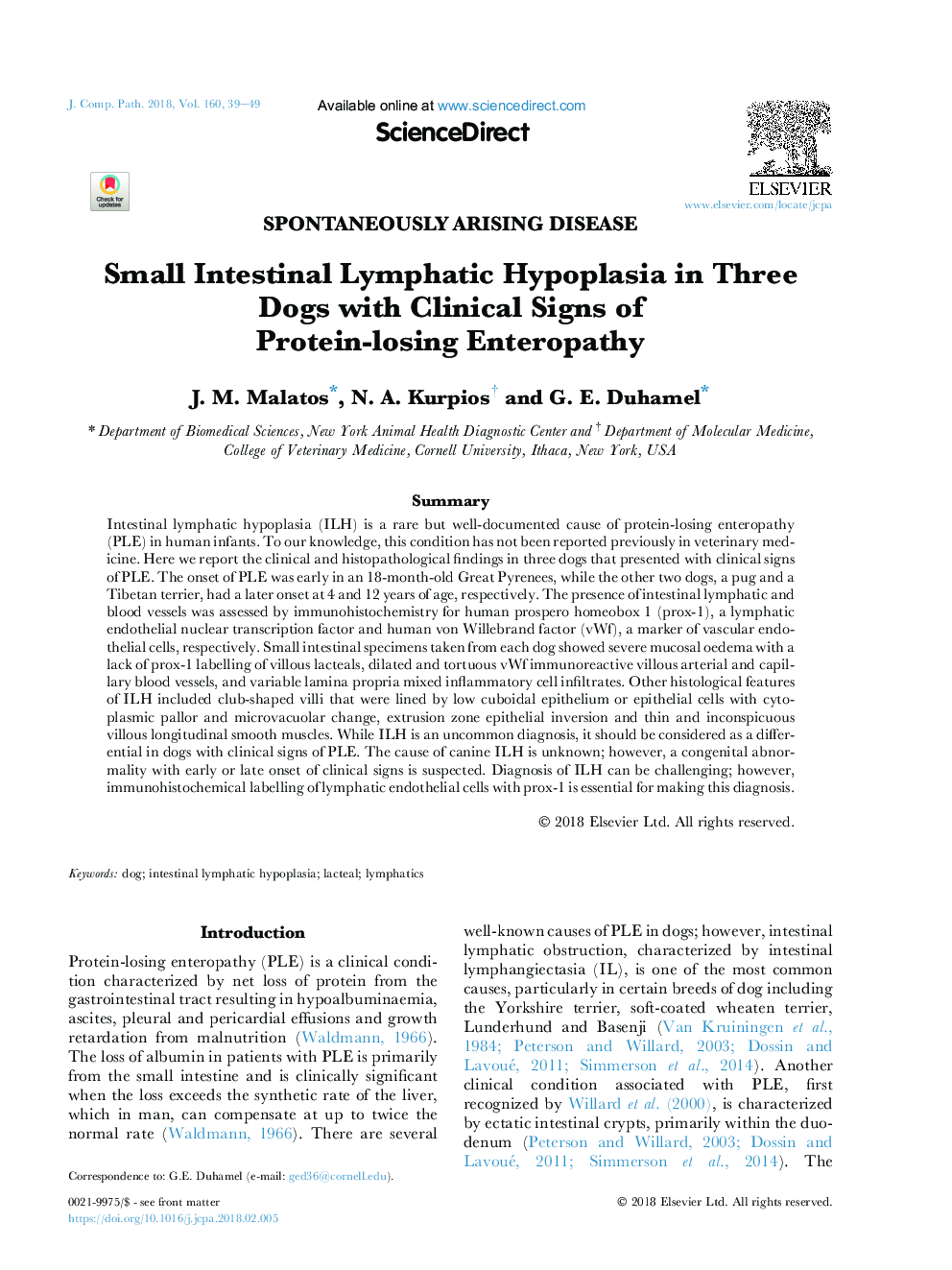| Article ID | Journal | Published Year | Pages | File Type |
|---|---|---|---|---|
| 8500421 | Journal of Comparative Pathology | 2018 | 11 Pages |
Abstract
Intestinal lymphatic hypoplasia (ILH) is a rare but well-documented cause of protein-losing enteropathy (PLE) in human infants. To our knowledge, this condition has not been reported previously in veterinary medicine. Here we report the clinical and histopathological findings in three dogs that presented with clinical signs of PLE. The onset of PLE was early in an 18-month-old Great Pyrenees, while the other two dogs, a pug and a Tibetan terrier, had a later onset at 4 and 12 years of age, respectively. The presence of intestinal lymphatic and blood vessels was assessed by immunohistochemistry for human prospero homeobox 1 (prox-1), a lymphatic endothelial nuclear transcription factor and human von Willebrand factor (vWf), a marker of vascular endothelial cells, respectively. Small intestinal specimens taken from each dog showed severe mucosal oedema with a lack of prox-1 labelling of villous lacteals, dilated and tortuous vWf immunoreactive villous arterial and capillary blood vessels, and variable lamina propria mixed inflammatory cell infiltrates. Other histological features of ILH included club-shaped villi that were lined by low cuboidal epithelium or epithelial cells with cytoplasmic pallor and microvacuolar change, extrusion zone epithelial inversion and thin and inconspicuous villous longitudinal smooth muscles. While ILH is an uncommon diagnosis, it should be considered as a differential in dogs with clinical signs of PLE. The cause of canine ILH is unknown; however, a congenital abnormality with early or late onset of clinical signs is suspected. Diagnosis of ILH can be challenging; however, immunohistochemical labelling of lymphatic endothelial cells with prox-1 is essential for making this diagnosis.
Keywords
Related Topics
Life Sciences
Agricultural and Biological Sciences
Animal Science and Zoology
Authors
J.M. Malatos, N.A. Kurpios, G.E. Duhamel,
